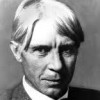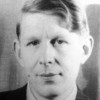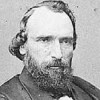The person you are most afraid to contradict is yourself.
Nassim Nicholas Taleb (b. 1960) Lebanese-American essayist, statistician, risk analyst, aphorist.
The Bed of Procrustes: Philosophical and Practical Aphorisms, “Preludes” (2010)
(Source)
Quotations about:
indecision
Note not all quotations have been tagged, so Search may find additional quotes on this topic.
As one who wills, and then unwills his will,
Changing his mind with every changing whim,
Till all his best intentions come to nil,
So I stood havering in that moorland dim,
While through fond rifts of fancy oozed away
The first quick zest that filled me to the brim.[E qual è quei che disvuol ciò che volle
e per novi pensier cangia proposta,
sì che dal cominciar tutto si tolle,
tal mi fec’ïo ’n quella oscura costa,
perché, pensando, consumai la ’mpresa
che fu nel cominciar cotanto tosta.]Dante Alighieri (1265-1321) Italian poet
The Divine Comedy [Divina Commedia], Book 1 “Inferno,” Canto 2, l. 37ff (2.37-42) (1309) [tr. Sayers (1949)]
(Source)
(Source (Italian)). Alternate translations:As he who what he first resolv'd rejects,
And by some fresher reasons is induc'd
Wholly to lay aside his first intent;
So I, now in the mountain's shade arriv'd,
Refus'd th' attempt which I at first desir'd.
[tr. Rogers (1782), ll. 34-38]Like one, who, some imagin'd peril near,
Feels his warm wishes chill'd by wint'ry fear,
And resolution sicken at the view,
Thus I perceiv'd my sinking spirits fail,
Thus trembling, I survey'd the gloomy vale,
As near the moment of decision drew.
[tr. Boyd (1802), st. 8]As one, who unresolves
What he hath late resolv'd, and with new thoughts
Changes his purpose, from his first intent
Remov'd; e'en such was I on that dun coast,
Wasting in thought my enterprise, at first
So eagerly embrac'd.
[tr. Cary (1814)]As one that what he wished unwisheth now,
And, changing purpose in a newer drift.
Doth his first motion wholly disallow;
So wrought I then beneath that gloomy cliff,
Who, meditating, quenched the venturous hope
That in her first beginning rose so swift.
[tr. Dayman (1843)]And as one who unwills what he willed, and with new thoughts changes his purpose, so that he wholly quits the thing he commenced,
such I made myself on that dim coast: for with thinking I wasted the enterprise, that had been so quick in its commencement.
[tr. Carlyle (1849)]Like one unwilling for the thing he wills,
Whose second thoughts have made his purpose pale,
And everything upon the threshold fail;
So did I with myself obscure that coast
With thinking much -- the enterprise gave o'er
With vehemence I had embraced before.
[tr. Bannerman (1850)]And as with him unwishing what he wish'd,
Who changes purpose as new thoughts arise,
So that his first intentions pass away;
It was with me when on that coast obscure;
For as thought grew, the enterprise was lost,
Which at the first so quickly I desir'd.
[tr. Johnston (1867)]And as he is, who unwills what he willed,
And by new thoughts doth his intention change,
So that from his design he quite withdraws,
Such I became, upon that dark hillside,
Because, in thinking, I consumed the emprise,
Which was so very prompt in the beginning.
[tr. Longfellow (1867)]And as is he who ceases to will that he willed, and by reason of new thoughts changes purpose, so that he withdraws himself wholly from his beginning, so became I on that dark hillside; so that in my thought I made an end of the enterprise which in its commencement had been so hasty.
[tr. Butler (1885)]Like unto one who wills not that he would,
And shifts his purpose with thought's changing tide,
So that he dare not make commencement good,
Thus acted I on that hill's darkened side;
In idle thought I wasted the emprise.
To which so swiftly I first had hied.
[tr. Minchin (1885)]And as is he who unwills what he willed, and because of new thoughts changes his design, so that he quite withdraws from beginning, such I became on that dark hillside: wherefore in my thought I abandoned the enterprise which had been so hasty in the beginning.
[tr. Norton (1892)]And as one who wisheth not that which he wished, and for new fancies changeth his resolve, so that he turns him wholly from his undertaking; even in such state was I on that dark slope; for, while I pondered, I brought to naught the enterprise, that was at first so readily embraced.
[tr. Sullivan (1893)]And as one is who what he wished unwishes,
And for new thoughts exchanges his set purpose,
So that he quite departs from his beginnings,
Such I became upon that gloomy hillside;
Because in thought the enterprise I wasted
Which had at the beginning been so eager.
[tr. Griffith (1908)]And as one who unwills what he willed and with new thoughts changes his purpose so that he quite withdraws from what he has begun, such I became on that dark slope; for by thinking of it I brought to naught the enterprise that was so hasty in its beginning.
[tr. Sinclair (1939)]And like one who unwills what he willed first
And new thoughts change the intention that he had,
So that his resolution is reversed,
So on that dim slope did my purpose fade
For I with thinking had dulled down the zest
That at the outset sprang so prompt and glad.
[tr. Binyon (1943)]As one who unwills what he wills, will stay
strong purposes with feeble second thoughts
until he spells all his first zeal away --
so I hung back and balked on that dim coast
till thinking had worn out my enterprise,
so stout at starting and so early lost.
[tr. Ciardi (1954)]And like one who unwills what he has willed and with new thoughts changes his resolve, so that he quite gives up the thing he had begun, such did I become on that dark slope, for by thinking on it I rendered null the undertaking that had been so suddenly embarked upon.
[tr. Singleton (1970)]As one who unwills what he willed, will change
his purposes with some new second thought,
completely quitting what he first had started,
so I did, standing there on that dark slope,
thinking, ending the beginning of that venture
I was so quick to take up at the start.
[tr. Musa (1971)]And just as he who unwills what he wills
and shifts what he intends to seek new ends
so that he's drawn from what he had begun,
so was I in the midst of that dark land,
because, with all my thinking, I annulled
the task I had so quickly undertaken.
[tr. Mandelbaum (1980)]And just like somebody who shilly-shallies,
And thinks again about what he has decided,
So that he gives up everything he has started,
I found I was on that obscure hillside:
By thinking about it I spoiled the undertaking
I had been so quick to enter in the first place.
[tr. Sisson (1981)]And then, like one who unchooses his own choice
And thinking again undoes what he has started,
So I became: a nullifying unease
Overcame my soul on that dark slope and voided
The undertaking I had so quickly embraced.
[tr. Pinsky (1994), ll. 31-35]And like one who unwills what he just now willed and with new thoughts changes his intent, so that he draws back entirely from beginning:
so did I become on that dark slope, for, thinking, I gave up the undertaking that I had been so quick to begin.
[tr. Durling (1996)]And I rendered myself, on that dark shore, like one who un-wishes what he wished, and changes his purpose, in new thinking, so that he leaves off what he began, completely, since in thought I consumed action, that had been so ready to begin.
[tr. Kline (2002)]As one who unwills what he willed,
and eyes another half-baked project,
so I bore away from my initial enterprise
and shilly-shallied on that twilit shore,
while dim thoughts flitted through my cranium
obscuring what I'd once been eager for.
[tr. Carson (2002)]And so -- as though unwanting every want,
so altering all at every altering thought
now drawing back from everything begun --
I stood there on the darkened slope, fretting
away from thought to thought the bold intent
that seemed so very urgent at the outset.
[tr. Kirkpatrick (2006)]And as one who unwills what he has willed,
changing his intent on second thought
so that he quite gives over what he has begun,
such a man was I on that dark slope.
With too much thinking I had undone
the enterprise so quick in its inception.
[tr. Hollander/Hollander (2007)]Like someone half regretting what once seemed knowledge,
intention shifted around by fresh ideas,
Starting to throw all old ones overboard,
I stood on that dark slope, pulled by feelings
So murky they dissipated whatever I'd thought
I knew, surrendering what once seemed real.
[tr. Raffel (2010)]Just so, obeying the unwritten rule
That one who would unsieh that which he wished,
Having thought twice about what he first sought,
Must put fish back into the pool he fished,
So they, set free, may once again be caught,
Just so did I in that now shadowy fold --
Because, by thinking, I'd consumed the thought
I started with, that I had thought so bold.
[tr. James (2013)]
At sixteen I was stupid, confused and indecisive. At twenty-five I was wise, self-confident, prepossessing, and assertive. At forty-five I am stupid, confused, insecure, and indecisive. Who would have supposed that maturity is only a short break in adolescence?
The pretext for indecisiveness is commonly mature deliberation; but in reality indecisive men occupy themselves less in deliberation than others; for to him who fears to decide, deliberation (which has a foretaste of that fear) soon becomes intolerably irksome, and the mind escapes from the anxiety of it into alien themes.
Henry Taylor (1800-1886) English dramatist, poet, bureaucrat, man of letters
The Statesman: An Ironical Treatise on the Art of Succeeding, ch. 21 (1836)
(Source)
That’s just the trouble, Sam Houston — it’s always my move. And damnit, I sometimes can’t tell whether I’m making the right move or not. Now take this Vietnam mess. How in the hell can anyone know for sure what’s right and what’s wrong, Sam? I got some of the finest brains in this country — people like Dean Rusk, Walt Rostow, and Dean Acheson — making some strong and convincing arguments for us to stay in there and not pull out. Then I’ve got some people like George Ball and Fulbright — also intelligent men whose motives I can’t rightly distrust — who keep telling me we’ve got to de-escalate or run the risk of a total war. And, Sam, I’ve got to listen to both sides. […] I’ve just got to choose between my opposing experts. No way of avoiding it. But I sure as hell wish I could really know what’s right.
Lyndon B. Johnson (1908-1973) American politician, educator, US President (1963-69)
Comment (1968-02) to Sam Houston Johnson
(Source)
Recalled in Sam Houston Johnson, My Brother Lyndon, ch. 1 (1969).
The man who insists upon seeing with perfect clearness before he decides, never decides. Accept life, and you must accept regret.
[Qui veut voir parfaitement clair avant de se déterminer ne se détermine jamais. Qui n’accepte pas le regret n’accepte pas la vie.]Henri-Frédéric Amiel (1821-1881) Swiss philosopher, poet, critic
Journal entry (1856-12-17), Journal Intime (1882) [tr. Ward (1884)]
(Source)
The sad truth of the matter is that most evil is done by people who never made up their minds to be or do either evil or good.
Hannah Arendt (1906-1975) German-American philosopher, political theorist
The Life of the Mind, Vol. 1 “Thinking,” Part 3, ch. 18 (1977)
(Source)
Sometimes rendered (possibly from the original lecture): "The sad truth is that most evil is done by people who never make up their minds to be good or evil."
My friend Sir Roger heard them both upon a round trot; and after having paused some time, told them with an air of a man who would not give his judgment rashly, that “much might be said on both sides.”
Joseph Addison (1672-1719) English essayist, poet, statesman
The Spectator, #122 (20 Jul 1711)
(Source)
The man who can make up his mind quick, makes up other people’s minds for them. Decision is a sharp knife that cuts clear and straight and lays bare the fat and the lean; indecision is a dull one that hacks and tears and leaves ragged edges behind it.
George Horace Lorimer (1867-1937) American journalist, author, magazine editor
Old Gorgon Graham: More Letters from a Self-Made Merchant to His Son, ch. 3 (1903)
(Source)














